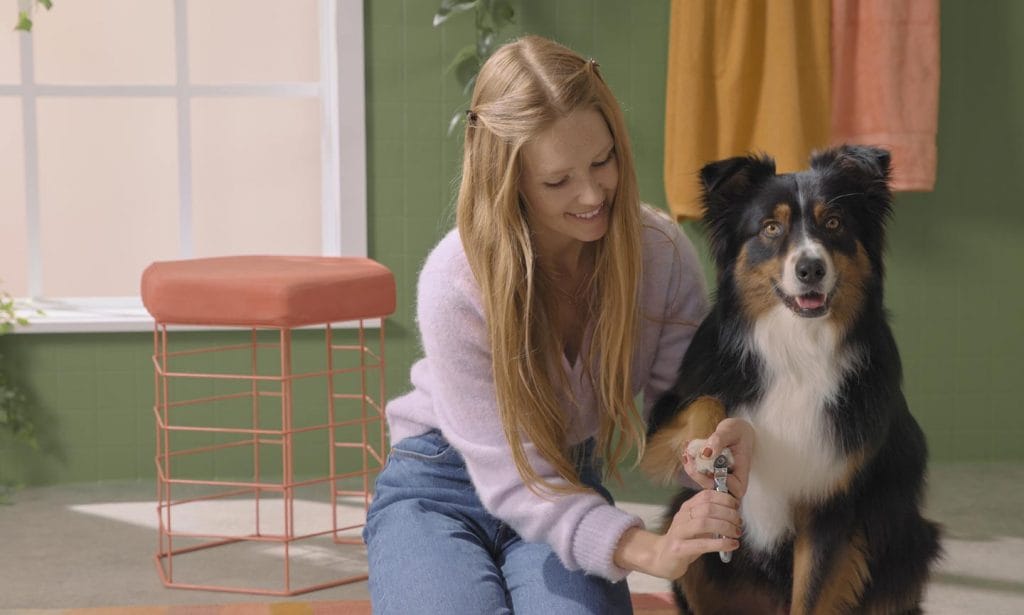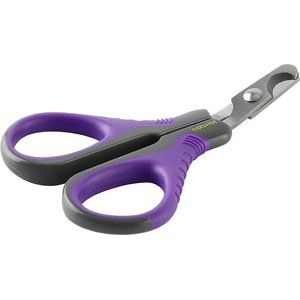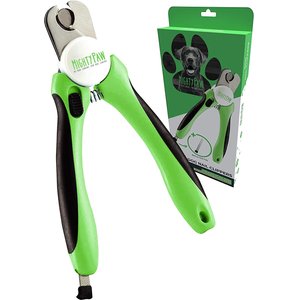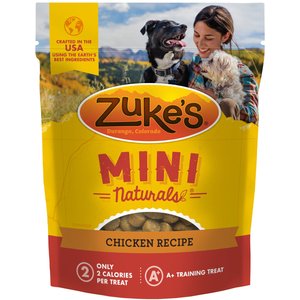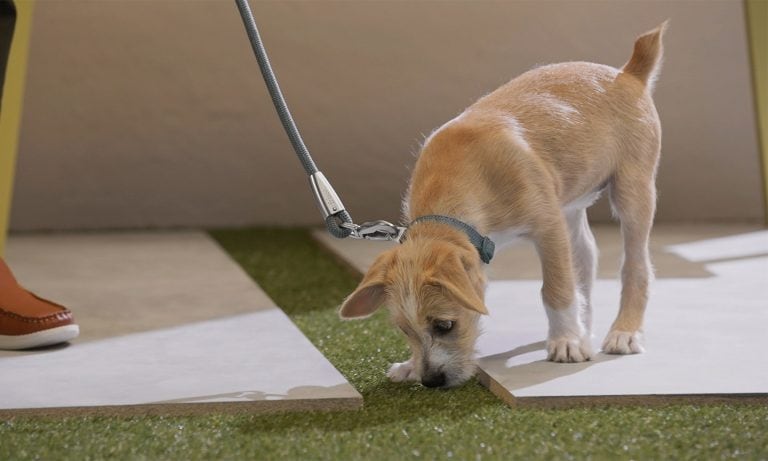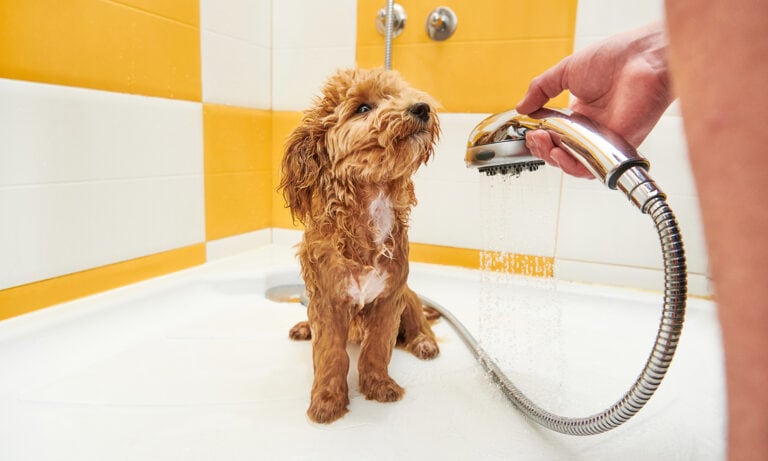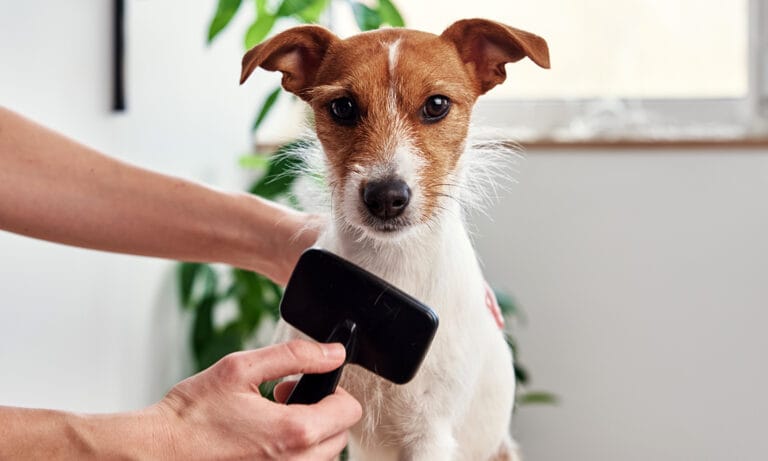Can you hear your dog coming by the tap-tap-tap of their nails on the floor? Have they accidentally scratched you when they jump up to play? Sounds like it’s time to learn how to cut dog nails. Trimming your dog’s nails is an essential grooming practice for all pet parents.
Long toenails don't just look bad—they can impact your pup's health and happiness. In fact, ignoring your dog's nails could lead to a lifetime of pain.
While the idea of trimming your dog's nails may seem scary, going to the groomer for nail trims can be expensive and inconvenient. Not to worry! I was a dog groomer for 12 years, and I'm here to show you how to cut dog nails step by step.
In This Guide
How Often Should You Cut Your Dog's Nails?
A good rule is to trim your dog's nails once a month. Dogs who run or walk a lot on pavement may need their nails cut less than that (apart from their dewclaws), while dogs who spend most of their time inside or on the grass may require nail trimming every couple of weeks.
Letting your dog's nails get too long isn't just a temporary problem—the quick, aka the vein inside your dog's nail, can grow longer, meaning you can't trim your dog's nails as short next time.
When Are a Dog's Nails Too Long?
If you notice any of these signs, that's a good indication that your dog's nails are too long:
- You can hear them clicking on hard floors or the sidewalk
- There's a long, slender curve coming off the nail
- The nail extends far past the quick (visible only on dogs with white nails)
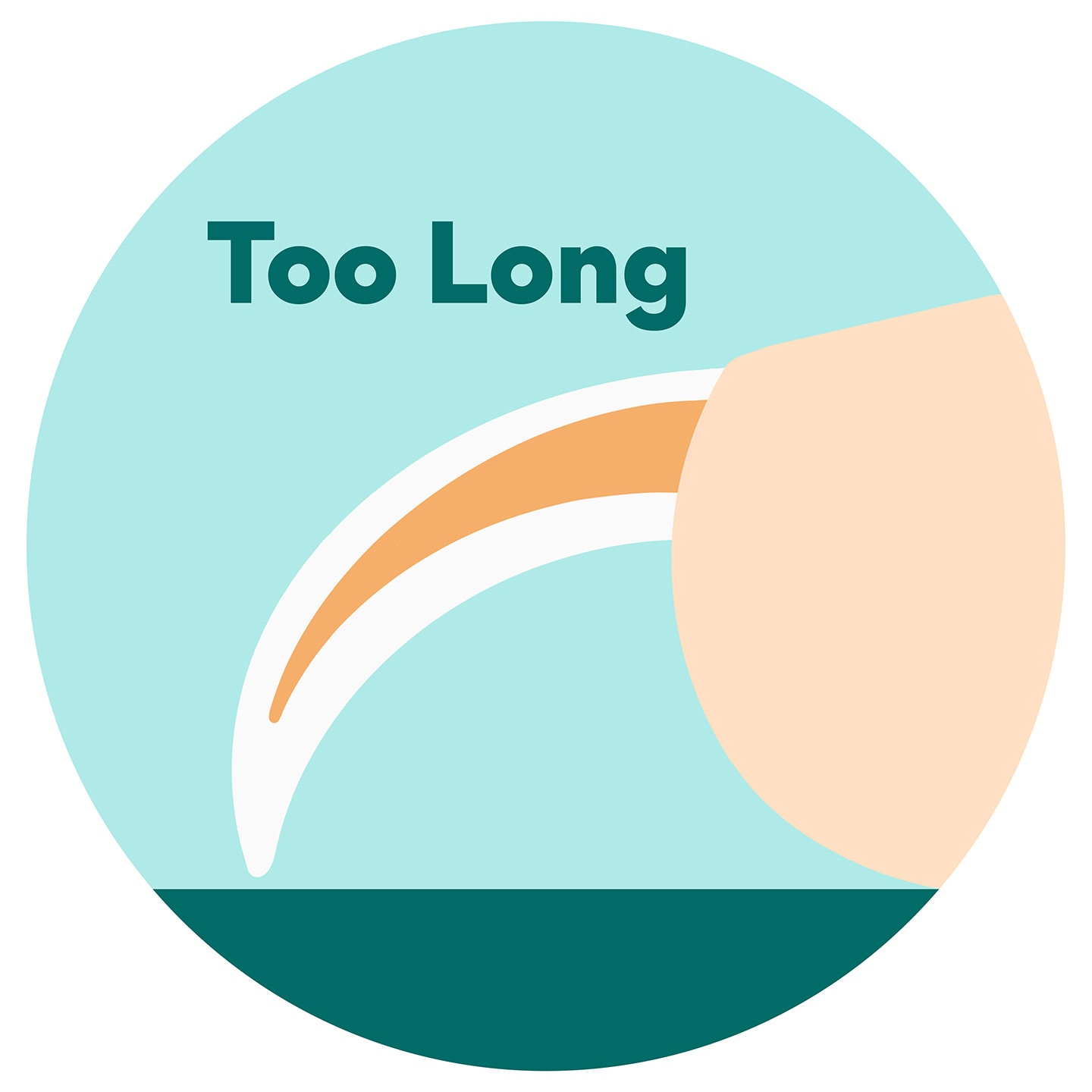
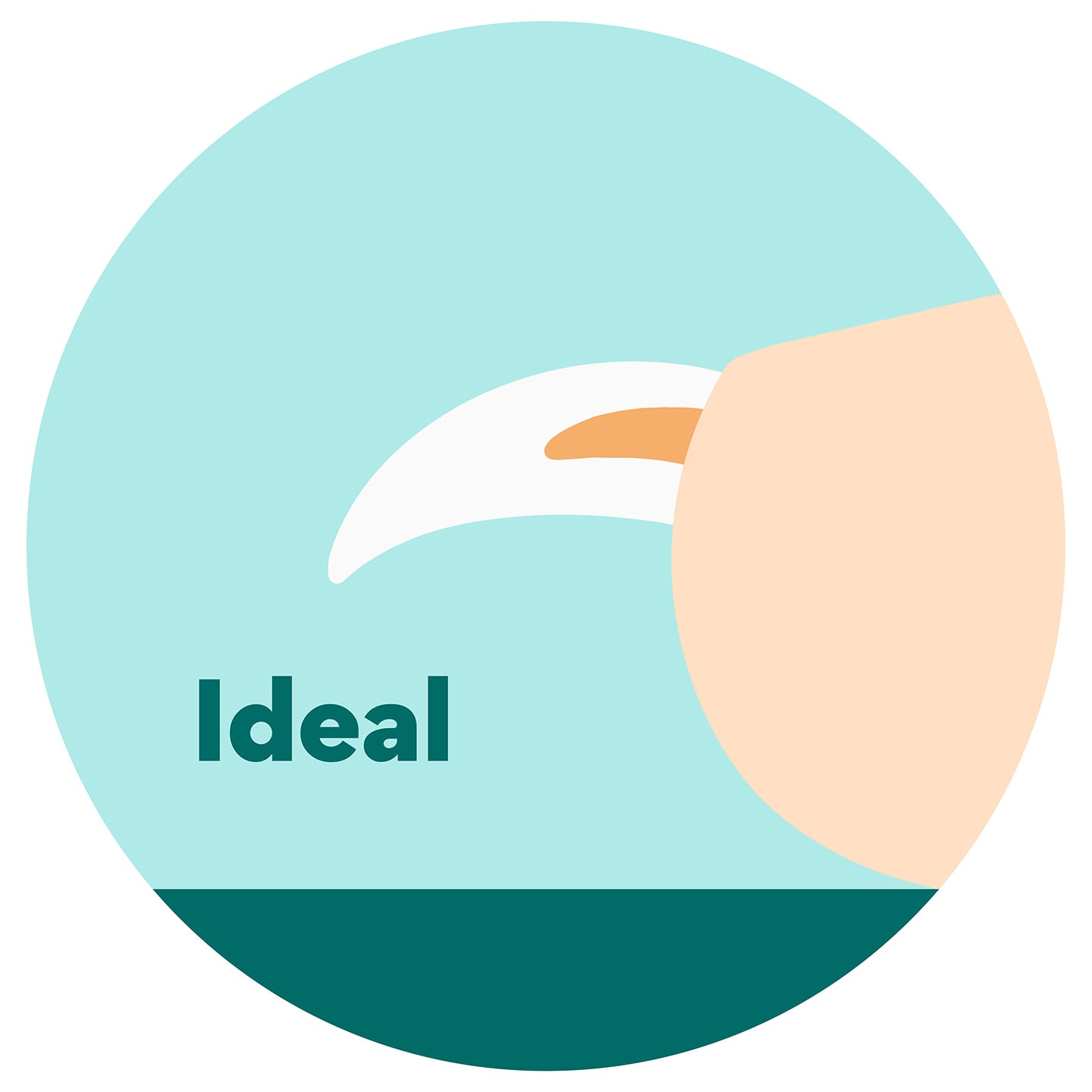
What Happens if My Dog's Nails Get Too Long?
Long nails can have many negative impacts on your pup's health and happiness.
Short-term effects of long nails:
- Each toe is pressed up or twisted to one side, causing pain when your dog walks.
- Long nails can grow into the paw pad, causing pain and the potential for infection.
- They can get caught in carpet, blankets and even their collar.
Long-term effects of long nails:
- The quick can grow out, making it impossible to get the nails short enough.
- Chronic long nails can cause arthritis in the feet.
- The unusual stance caused by walking with long nails can cause numerous joint problems.
Shop Related Products on Chewy
How to Cut Dog Nails: Step-by-Step Instructions
1 Gather Supplies
There are a few things you should have handy when you're ready to cut your dog's nails:
- Dog treats
- Styptic powder, such as Miracle Care Kwik-Stop, or cornstarch/flour
- Nail clippers or a nail grinder
- An extra pair of hands (optional)
- Calm nerves and lots of patience!
Types of Nail Grinders and Clippers
There are a few types of tools for cutting dogs' nails:
- Guillotine style clippers, like these Resco dog nail clippers, have a hole that you poke the nail through. They stay sharp longer but are harder to use.
- Scissors style clippers like these Hertzko Angled Blade Pet Clippers look like small scissors with divots toward the end of each blade. These are best for small dogs and puppies.
- Pliers style clippers like the Mighty Paw Nail Clipper resemble scissors style clippers, but they have a spring, making them stronger and better for large, thick nails.
- Nail grinders, commonly referred to by the Dremel brand name, file your dog's nails smooth while also making it easier to avoid hitting the quick.
2 Ease Your Dog Into It
If you've never trimmed your dog's nails before, start small with these steps:
- Let your dog sniff the nail clippers or grinder, then reward them with a treat.
- Turn on the nail grinder or cut a dry spaghetti noodle to get your dog used to the sound the tool makes, then reward them.
- Cut one nail and give your dog a treat.
- Only do one nail a day at first until your dog gets used to it. Gradually start doing more nails at each sitting until your dog holds still for all four paws.
3 Pick Up the Foot
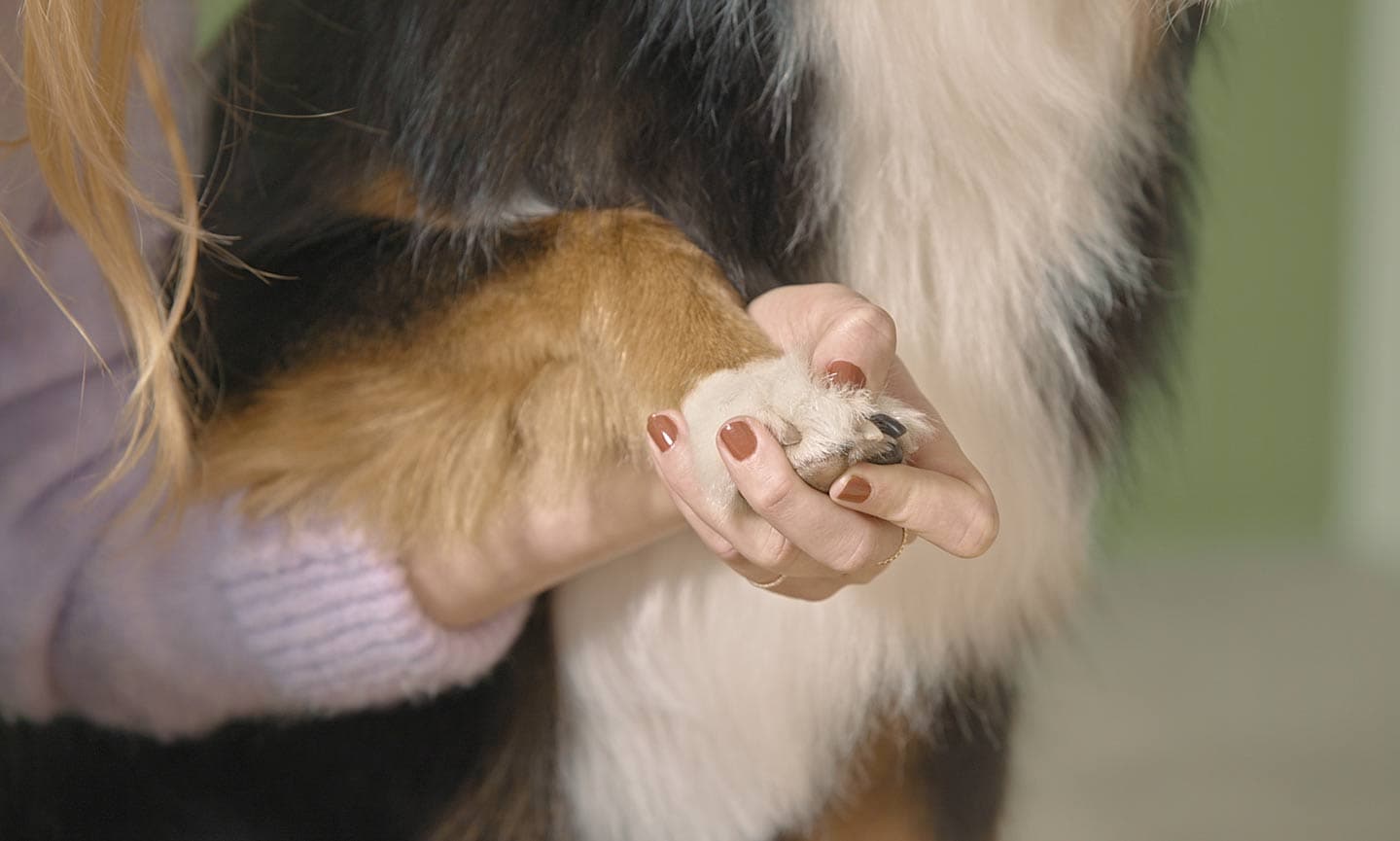
While it's tempting to pick up your dog's paw from the front and look at the nails head-on, there are easier ways to trim your dog’s nails. Some pet parents find it easiest to sit to the side of their dog and reach under and around their dog's arm to hold the paw, like in the photo above. Then, with your free hand, you can trim with clippers.
For other dogs, it's easier if you sit behind the dog and flip their paw backward to look at the bottom of the foot. (This is my preferred method.) This gives you a great view of what you're doing while keeping your dog's leg in a natural position.
4 Isolate the Nail to Cut
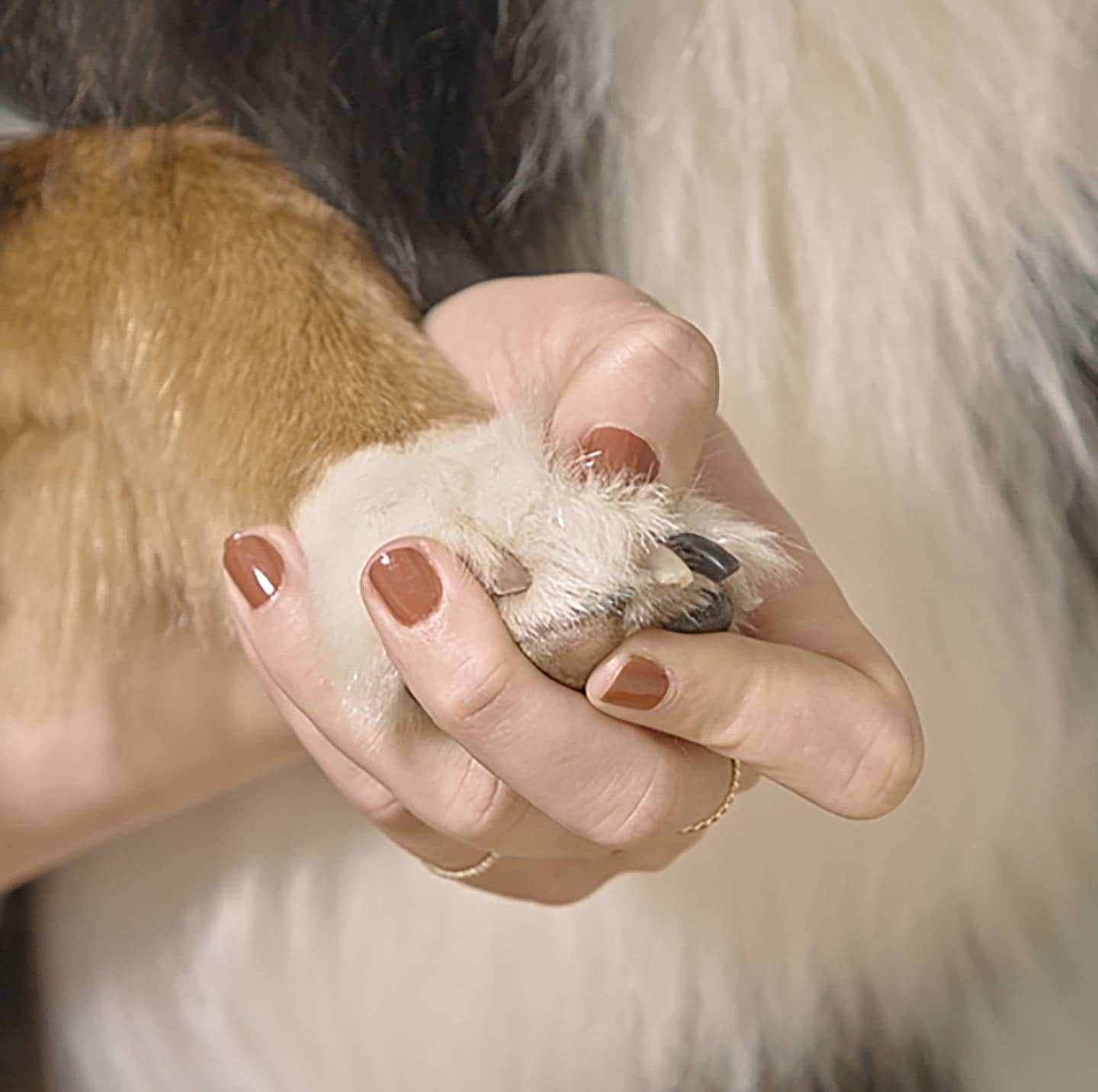
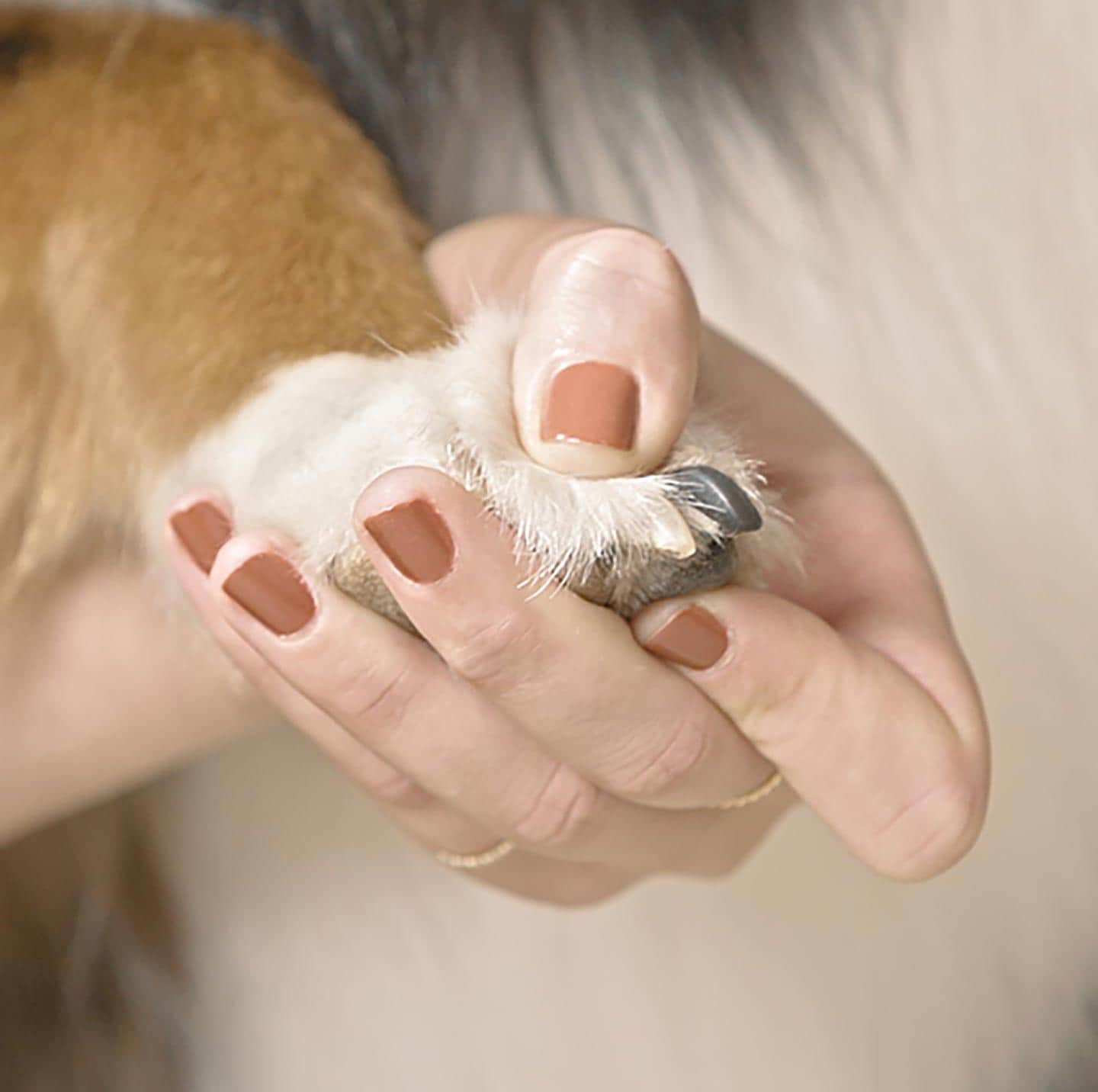
Decide which toe to start with and expose the nail.
If your dog has furry feet, you'll need to push or trim hair out of the way to see what you're doing. This is especially important if you're using a nail grinder! The biggest downside to nail grinders is that they tend to grab fur and yank.
Next, place your forefinger on the toe's pad and your thumb on the top of the toe on the skin above the nail. Push your forefinger up and backward on the pad while pushing your thumb forward to extend the nail away from the foot.
5 Decide Where to Cut
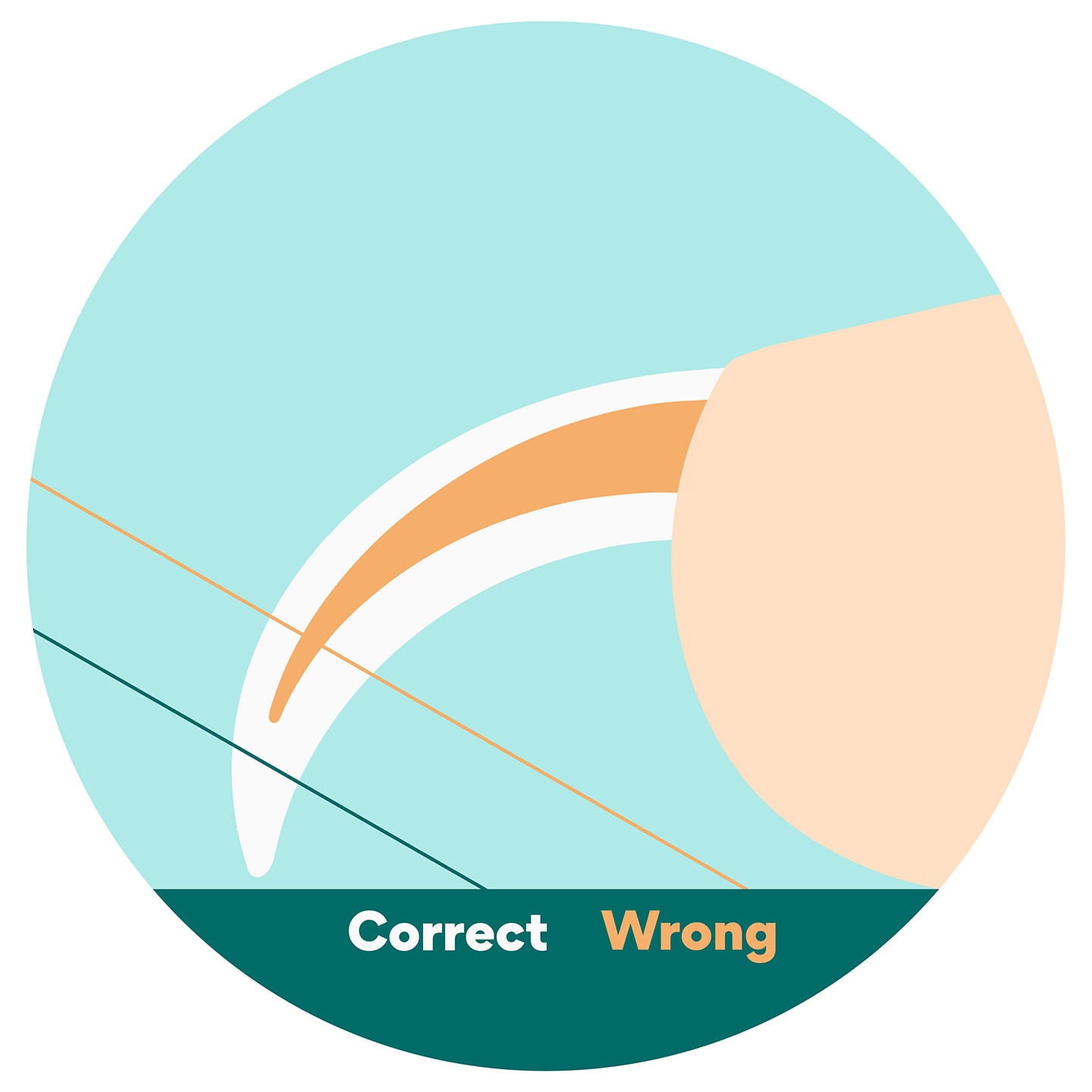
The goal is to cut your dog's nails as short as possible without making them bleed. Here are some tips for how to avoid the quick:
- For white nails, just avoid cutting the pink part.
- On many nails, the part you can safely cut is much skinnier than the rest of the nail.
- When cutting black nails, cut off a little bit at a time. When you're getting near the quick, the inside of the nail will look chalky and white. Stop when you see a black dot in the middle of the white area–that's the end of the quick.
What Happens if I Cut the Quick?
If you cut your dog's quick, it will hurt and bleed. Since not all pups hold still for nail trims, even professional groomers cut the quick sometimes, so don't beat yourself up if it happens!
Keep cornstarch, flour or styptic powder handy. While cornstarch and flour can stop the bleeding, only styptic powder can also help ease pain because it contains Benzocaine.
The best way to avoid cutting the quick is to cut little bits of the nail at a time rather than going for a big chunk. If you happen to cut the quick, stay calm. Scoop up some styptic powder, flour or cornstarch and press it to the quicked nail for a few seconds.
If your dog gets blood in their fur after a quicked nail, it's safe and easy to wipe it away with hydrogen peroxide on a cotton ball.
6Cut at a 45° Angle
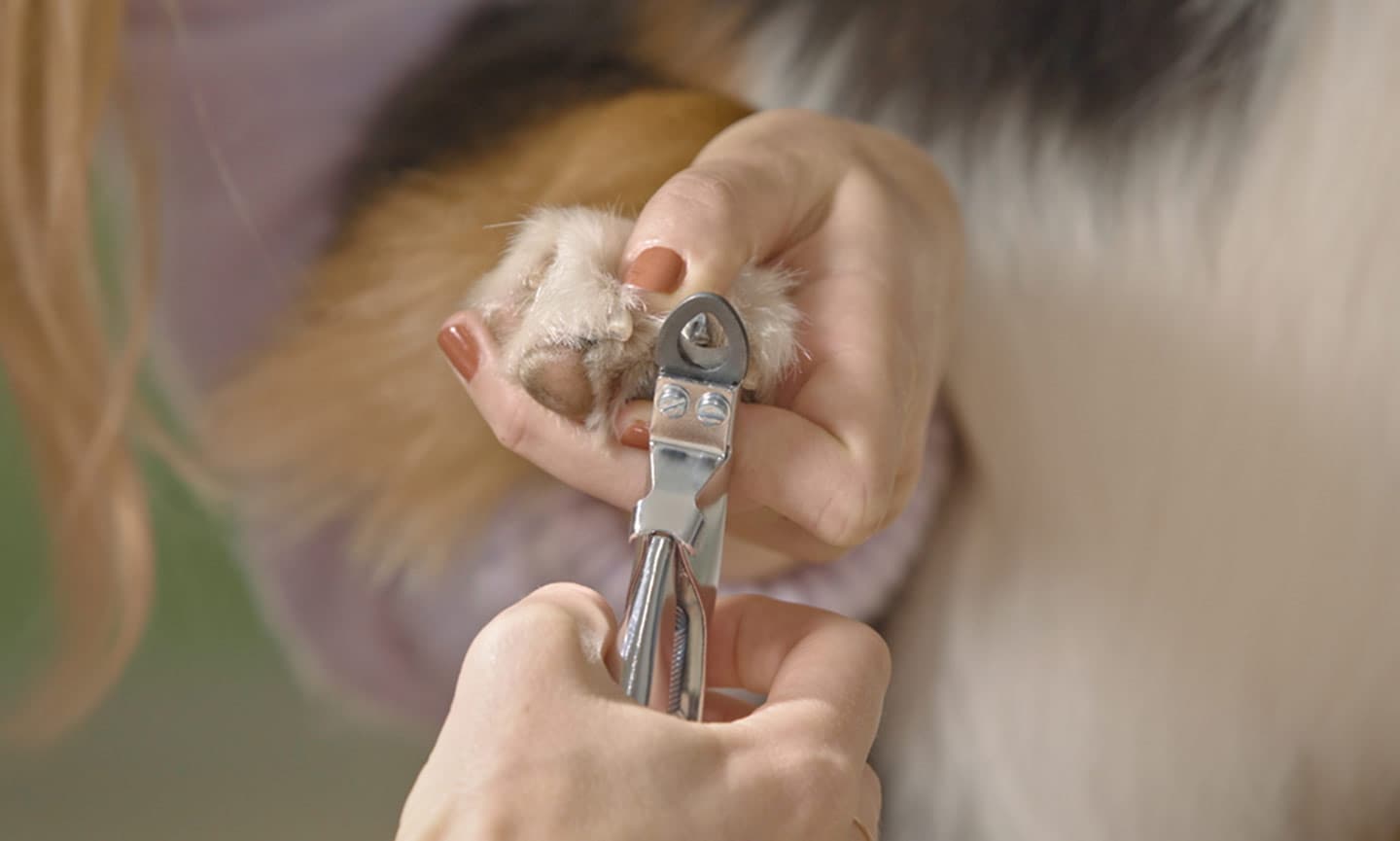
7Don't Forget the Dewclaws!
Most dogs have dewclaws on the inside of their front legs. The claws are up the leg a little further than the rest of your dog's toes and are loosely attached.
Some dog breeds, like Saint Bernards and Great Pyrenees, have double dewclaws on their back legs, so be sure to check all four feet.
8Nail Grinding
You can choose to either only grind your dog's nails or to use it as a finishing touch after trimming them with another tool.
Hold the grinder toward the top for better control. Always make sure you have as much hair out of the way as possible—both your dog's fur and your hair, if it's long.
Most of the time, light to medium pressure is enough. Use short strokes to see what you're doing and look for a pink dot (on white nails) or a black dot (on dark nails) in the middle of the nail tip.
If your pup has long, thick nails and you know the quick is far back, you can apply firm pressure. Just remember to keep checking how close you're getting to the quick.
9Reward Your Dog
More Ways to Keep Your Pup Looking Fresh
Share:
